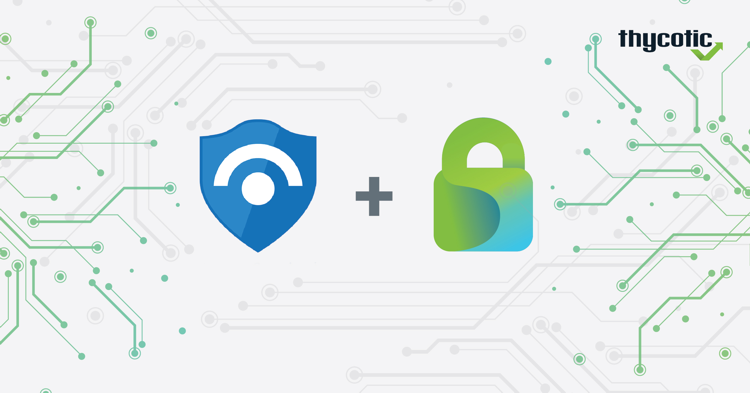PAM for DevOps – What it is and why you need it
In today's digital landscape, DevOps is an essential approach to software development and deployment. It enables organizations to increase their agility and speed of delivery, while also improving collaboration between development and operations teams.
With great power comes great responsibility, and DevOps teams very often have access to critical infrastructure and systems. This is where Privileged Access Management (PAM) comes in as a crucial tool for ensuring security and compliance.
What is Privileged Access Management? PAM is a set of technologies and processes that enable organizations to manage and control privileged access to critical assets. It involves the implementation of policies and controls to restrict and monitor privileged access to sensitive systems, applications, and data. PAM solutions enable organizations to secure privileged access by providing centralized authentication, authorization, and auditing of privileged activities.
Why is PAM important for DevOps?
In DevOps, speed of delivery and collaboration between teams is critical. Privileged access is often granted to enable automation and streamline the development and deployment processes. However, privileged access comes with a higher risk of security breaches, and DevOps teams must ensure that sensitive systems and data are protected from unauthorized access.
By implementing a PAM solution, DevOps teams can mitigate these risks by enforcing least privilege access policies, ensuring that only authorized users have access to privileged accounts, and monitoring privileged activities. PAM also enables teams to comply with regulations that require organizations to implement controls around privileged access.
Key benefits of PAM for DevOps
1. Enhanced security
PAM solutions provide robust authentication and authorization controls, ensuring that only authorized users have access to privileged accounts. PAM also enables teams to enforce least privilege access policies, which restrict access to only those resources that are necessary for users to perform their job functions. This reduces the risk of privilege escalation attacks, where attackers use compromised accounts to gain access to sensitive systems and data.
2. Improved compliance
PCI-DSS, HIPAA, and SOX regulations require organizations to implement controls around privileged access. With PAM, DevOps teams are given tools to comply with such industry regulations. PAM solutions provide audit trails that enable teams to track and report on privileged activities, demonstrating compliance with regulatory requirements.
3. Streamlined operations
To reduce the time and effort required to manage privileged account access, PAM solutions enable DevOps teams to automate the provisioning and de-provisioning of privileged accounts, PAM also helps teams implement role-based access controls, which simplify the management of access permissions by grouping users into roles based on their job functions.
4. Centralized management
Thanks to PAM, teams can manage and monitor access to critical assets from a single console, providing centralized management of privileged access. This reduces the risk of errors and improves visibility into privileged activities, enabling teams to detect and respond to potential security threats quickly.
5. Improved collaboration
By providing secure access to shared resources, PAM solutions enable DevOps teams to collaborate more effectively and grant access to privileged accounts based on role or project, enabling seamless collaboration between development and operations teams.
Best practices for implementing PAM in DevOps
1. Conduct a risk assessment
Before implementing a PAM solution, it's essential to conduct a risk assessment to identify critical assets and assess the risk of unauthorized access. This enables teams to prioritize the implementation of controls based on the risk to the organization.
2. Enforce least privilege access
Implementing least privilege access policies is essential for reducing the risk of privilege escalation attacks. Teams should restrict access to only those resources that are necessary for users to perform their job functions.
3. Implement role-based access controls
Role-based access controls simplify the management of access permissions by grouping users into roles based on their job functions. This approach simplifies the management of access permissions and ensures that users only have access to the resources they need to perform their job functions.
4. Automate workflows
Automating workflows to ensure provisioning and de-provisioning happen at the appropriate time helps reduces the time and effort required to manage access. It also ensures that access is granted and revoked promptly, reducing the risk of unauthorized access.
5. Monitor and audit privileged activities
PAM solutions provide audit trails that enable teams to monitor and report on privileged activities. Teams should regularly review audit logs to detect and respond to potential security threats quickly.
6. Train and educate users
Effective PAM requires collaboration and education across the organization. DevOps teams should provide training and education to users on the importance of PAM, including best practices for managing privileged access.
Privileged Access Management (PAM) is a critical tool for ensuring the security and compliance of your DevOps operations. PAM solutions provide your teams with the ability to manage and control privileged access to critical assets, reducing the risk of unauthorized access, and potential security threats.
By implementing PAM best practices, your DevOps teams can enhance security, improve compliance, streamline operations, centralize management, and improve collaboration. Effective PAM requires collaboration and education across the organization, so have your DevOps teams prioritize the implementation of PAM solutions to ensure the security and compliance of their operations.
Want to try Privileged Access Management for DevOps for free? Take a look at Delinea's DevOps Secrets Vault.
Manage DevOps secrets safely


